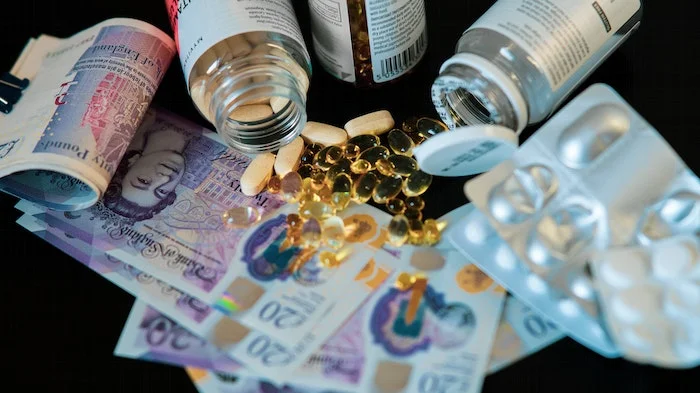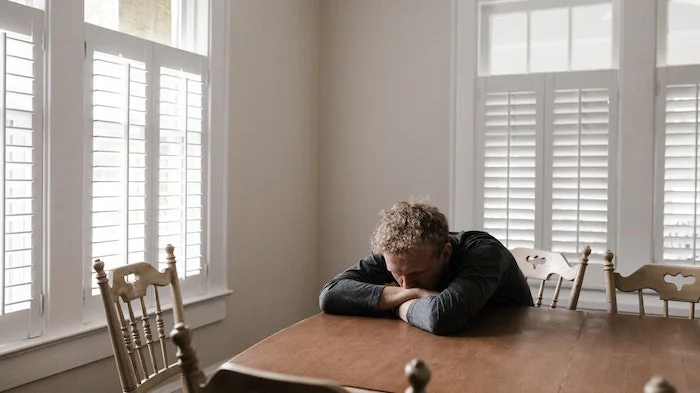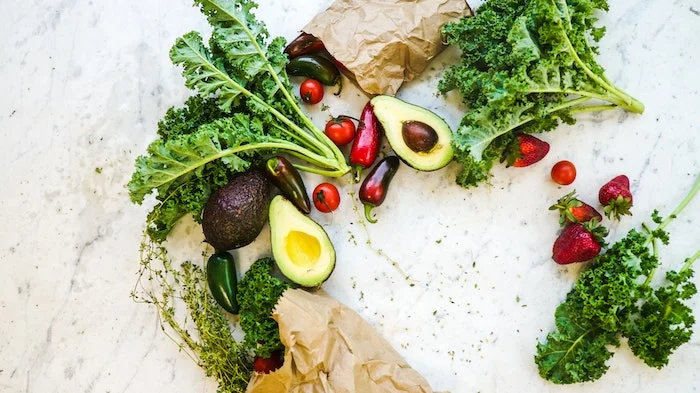- Home
- Addiction Guides
- Is Relapse Common during Addiction Treatment?
Is Relapse Common during Addiction Treatment?
Anyone who has ever recovered from an addiction to drugs or alcohol will know just how hard it is to recover and stay sober.
That is why relapse prevention is an extremely important part of the rehabilitation journey for millions of people.
If you want to remain sober and in recovery for a long period of time, then time and effort must be put into your recovery. You will have to work hard to remain sober during day to day life, and must allow your brain and body the time to recover [1].
Whilst it may be the hardest part of your recovery journey, staying sober and avoiding triggers and relapses in the outside world will be one of the most rewarding things you do.
What is a Relapse?

A relapse is when someone starts abusing drugs or alcohol again after they have received treatment in an attempt to recover. Some relapses involve a one-time mistake, where an individual consumes the addictive substance before stopping immediately after.
There are other types of relapses where the individual completely falls off the track, and continues to use again for a long period of time.
It is often hard for individuals to remain sober during day-to-day life due to triggers. For a recovering addict, there are triggers throughout society and day-to-day life that makes it incredibly hard to remain sober. These triggers include seeing other people abuse the addictive substance, being around old friends who still abuse, stress and arguments with loved ones.
When someone suffers from an addiction, the chemicals in the addictive substance damages and alters the brain. This lasts for a while, meaning that the structures in their brain will take a while before they go back to normal.
Stages of a Relapse

It is now well-researched that relapse often isn’t a one-off affair; there is a process involved. Most people go through an emotional and then a mental relapse before they physically fall off the wagon. [2]
Understanding how a relapse works makes it a lot easier to treat and prevent in the future.
These three stages are now cited throughout most relapse prevention plans, along with a list of warning signs for each different stage.
Below are the three stages of relapse:
Step 1 – The Emotional Relapse
The first stage of relapse is an emotional one. This is where an individual who is still recovering from an addiction issue is not actively thinking about relapsing. However, their emotions and behaviours are slowly spiralling out of control, which is creating the perfect storm for a relapse.
Although they won’t be aware of this, their emotions are building up in a worrying and dangerous way. They might be feeling more stressed, anxious, depressed or angry than usual.
They might be spending more time alone than before, they might be skipping their therapy sessions and self-help groups or struggling with sleeping or eating.
Step 2 – The Mental Relapse
Once the individual moves from the emotional relapse stage, they move into the mental relapse stage. This is where they start to struggle with their emotions and start actively thinking about abusing the addictive substance to calm their emotions.
They will start thinking about abusing again, and might even start planning how they might be able to. They will start thinking about the ‘good old days’ when they used to abuse the addictive substance, and might even start lying and stealing in order to do it again.
They will most certainly start hanging around their old friends who still abuseso that they can normalise their actions and gain access to the addictive substance easily.
Step 3 – The Physical Relapse
The final stage of a relapse is a physical one. This is where they physically consume the addictive substance again. As discussed above, staying sober is incredibly hard when you are surrounded by a world of triggers.
For those who are still in the early stages of recovery, it is incredibly hard to avoid these triggers and minimise these cravings.
It is important to remember that for those still recovering from an addiction, one drink can easily lead to a lot more and as they will well know, it can soon become incredibly hard to stop.
What Causes a Relapse?

A relapse is usually caused by being exposed to triggers. It is now believed that almost half of all people recovering from an addiction suffer from at least one temporary moment of weakness that results in them abusing again at some point during their life.
This is why it is incredibly important to understand what causes and triggers a relapse, so that you can avoid them as much as possible.
A lack of friends, family and a general support system often contributes to people relapsing after they leave rehab. That is why it is incredibly important to make sure that you are surrounded by supportive and caring people when you leave.
For this reason, a lot of people who leave rehab end up going to live back with their parents or possibly siblings since they return back home, to ensure that they have a good and stable support system.
You should also consider attending self-help groups once you leave rehab to ensure that you are also supported and surrounded by people who know and understand what you are going through to give you the right advice and support.
Unfortunately, a lot of people who leave rehab continue to spend time with their old friends, who maybe also abuse drugs.
It is important that you’re spending time with people who provide you with a good influence, and that you are not surrounded by the substances that made you addicted.
A lot of people find themselves leaving rehab wanting to throw themselves into their old, possibly stressful lives. It is important that you allow yourself the time and space to get back into normal, daily life and routine but without the usual daily stresses of normal life.
Stress can be a major trigger when someone’s recovering from an addiction to drugs and alcohol. You should consider taking some time before going back into work, and avoid arguments with any family members or friends.
The Three Stages to Recovery

Whilst there are clear stages to a relapse, there are also clear stages to recovery, too. It is important to remember this whilst recovering, as it is important that you take things one step at a time.
1. Abstinence
The first stage to recovery is withdrawing from the addictive substance. It is important to understand that abstinence does not mean simply cutting back on how much you consume, but means stopping consumption altogether.
You will most likely need to continue this for the rest of your life, meaning that you will have to manage triggers and cravings.
2. Repair
The next stage to recovery is repair. This is when the individual works hard to repair all the damage their addiction has caused over the years.
This might include repairing their emotions, their relationships, their career or their finances.
3. Growth
The next and final stage to recovery is growth. This is where they begin to pick up new skills and hobbies and start to grow in their relationships, personal life and career [3].
Tips on How to Avoid and Prevent a Relapse

When it comes to relapses, prevention is key. Not only is it incredibly useful to understand how a relapse works, but it’s also important to understand how to avoid a relapse altogether.
Whilst everyone might have different triggers individual to them, there are some very common triggers and techniques that you can use to avoid a relapse in the future.
1. Continue Attending Self Help Groups
Just because you leave rehab doesn’t mean that you have to stop attending self-help groups or therapy sessions. These prove invaluable to those who continue to use them, as they allow individuals the chance to talk openly and freely about their recovery and any cravings that they might have started to feel.
2. Create New, Healthier Habits
You should also aim to create healthier habits once you leave rehab. These include taking up a new sport or form of exercise, painting, travelling or trying something that you have never even considered before.
Not only will this help you to feel more confident and positive in day-to-day life, but you will meet entirely new friends along the ride.
3. Avoid Stress
Stress is a major trigger for some people. You should try to avoid stressful situations for the first few months of leaving rehab, just to allow your body and mind time to heal and get used to life without being dependent on the addictive substance.
This might avoid going back to work for a while, and avoiding stressful situations or arguments with loved ones.
4. Be Kind to Yourself

If you start to experience cravings, it is incredibly important to stay kind to yourself. Most people experience this after leaving rehab. You should remember that the road to recovery is never easier, and you have done exceedingly well to get to this stage.
Remember to look after your mind and body by exercising frequently, eating healthily and making time for some self-care.
5. Use your Relapse Prevention Plan
Remember to use and engage with your relapse prevention plan on a regular basis, even when you are not actively craving the addictive substance or considering relapsing.
Your relapse prevention plan is a preventative tool, and should be used on a frequent basis to remind yourself of the tips and tricks you learnt during rehab on how to stay sober and on track.
References
[1] Volkow ND, Wang GJ, Fowler JS, Tomasi D, Telang F. Addiction: beyond dopamine reward circuitry. Proc Natl Acad Sci U S A. 2011 Sep 13;108(37):15037-42. [PMC free article] [PubMed] [Reference list]
[2] Guenzel N, McChargue D. Addiction Relapse Prevention. [Updated 2022 May 8]. In: StatPearls [Internet]. Treasure Island (FL): StatPearls Publishing; 2022 Jan-. Available from: https://www.ncbi.nlm.nih.gov/books/NBK551500/
[3] Melemis SM. Relapse Prevention and the Five Rules of Recovery. Yale J Biol Med. 2015 Sep;88(3):325-32. [PMC free article] [PubMed] [Reference list]




